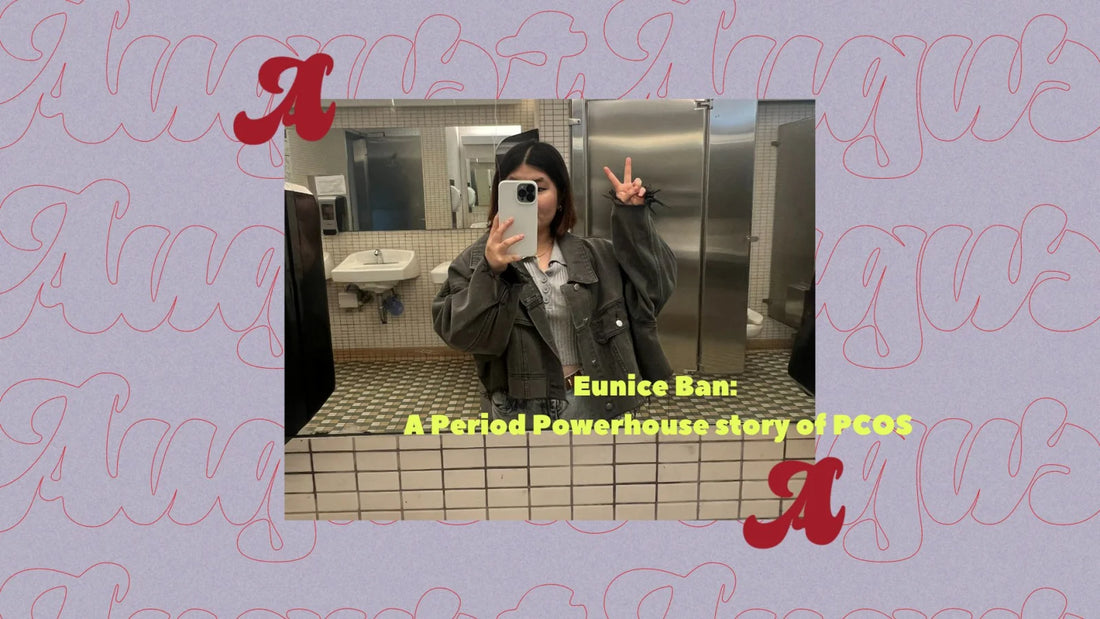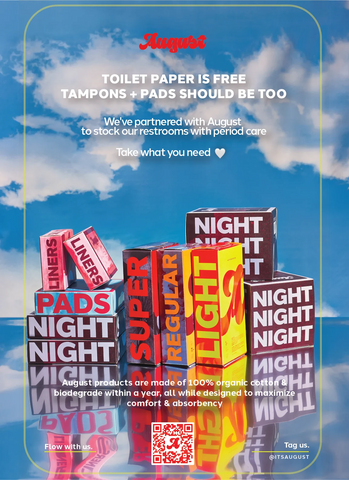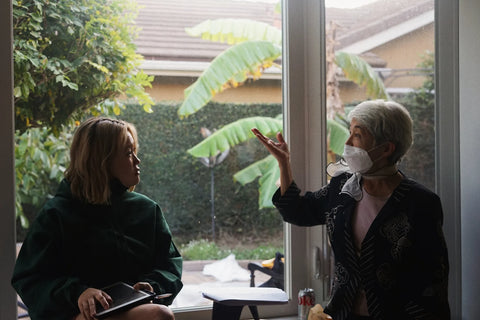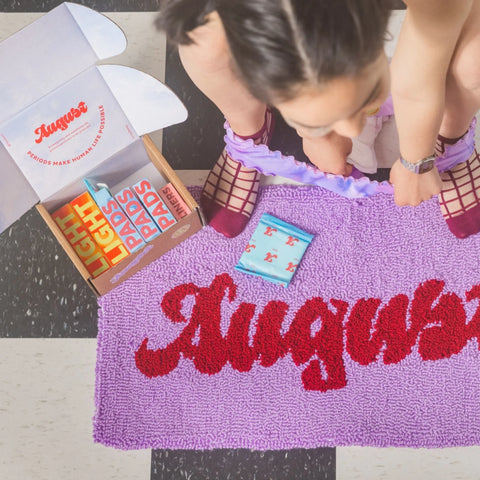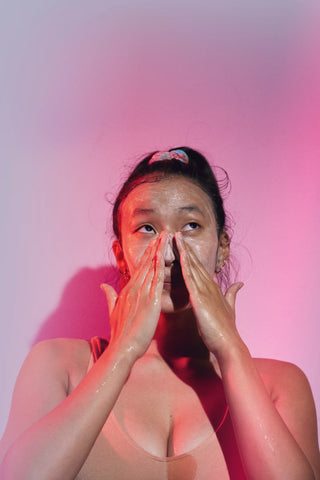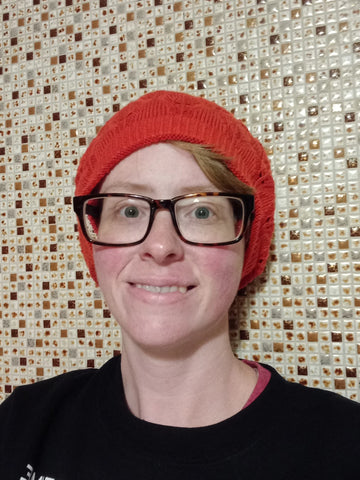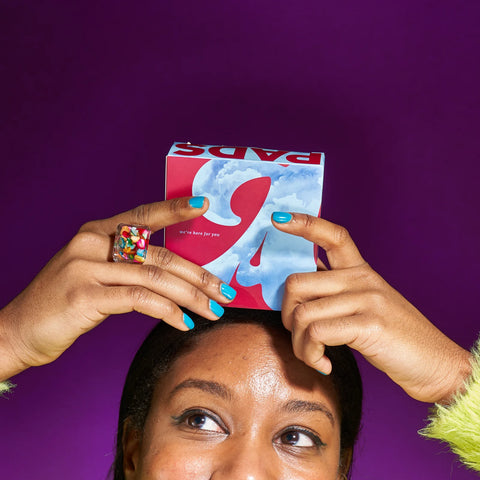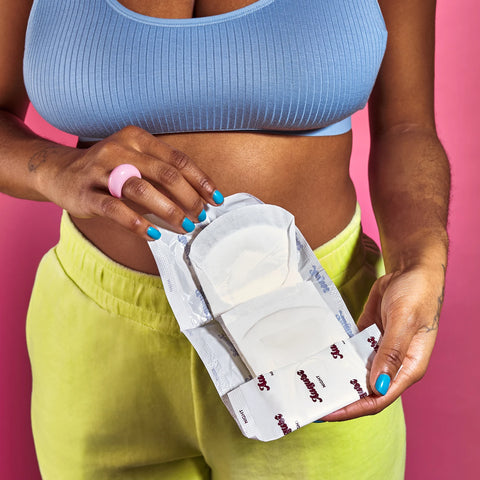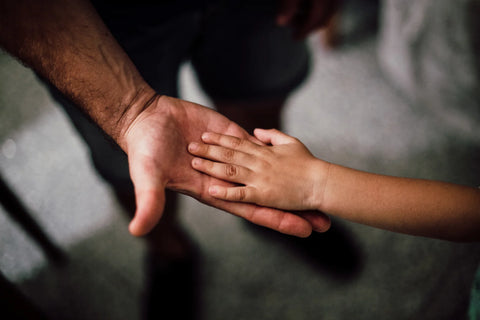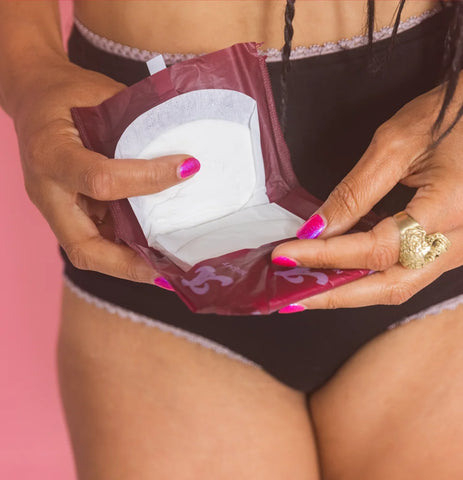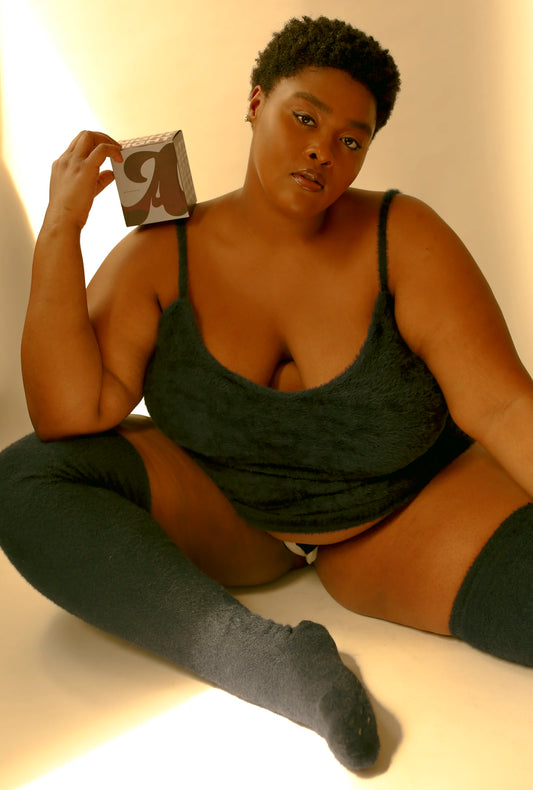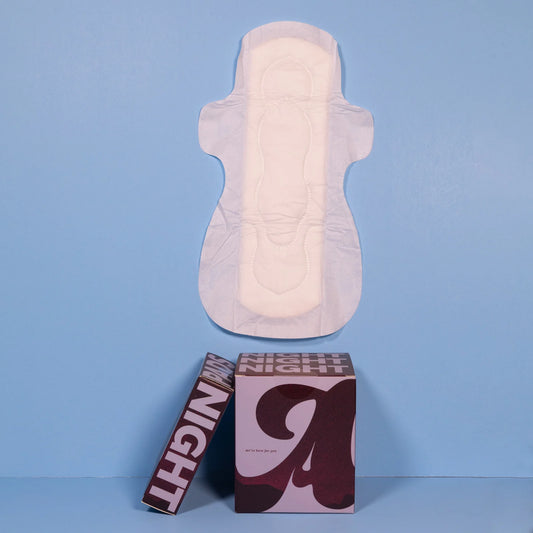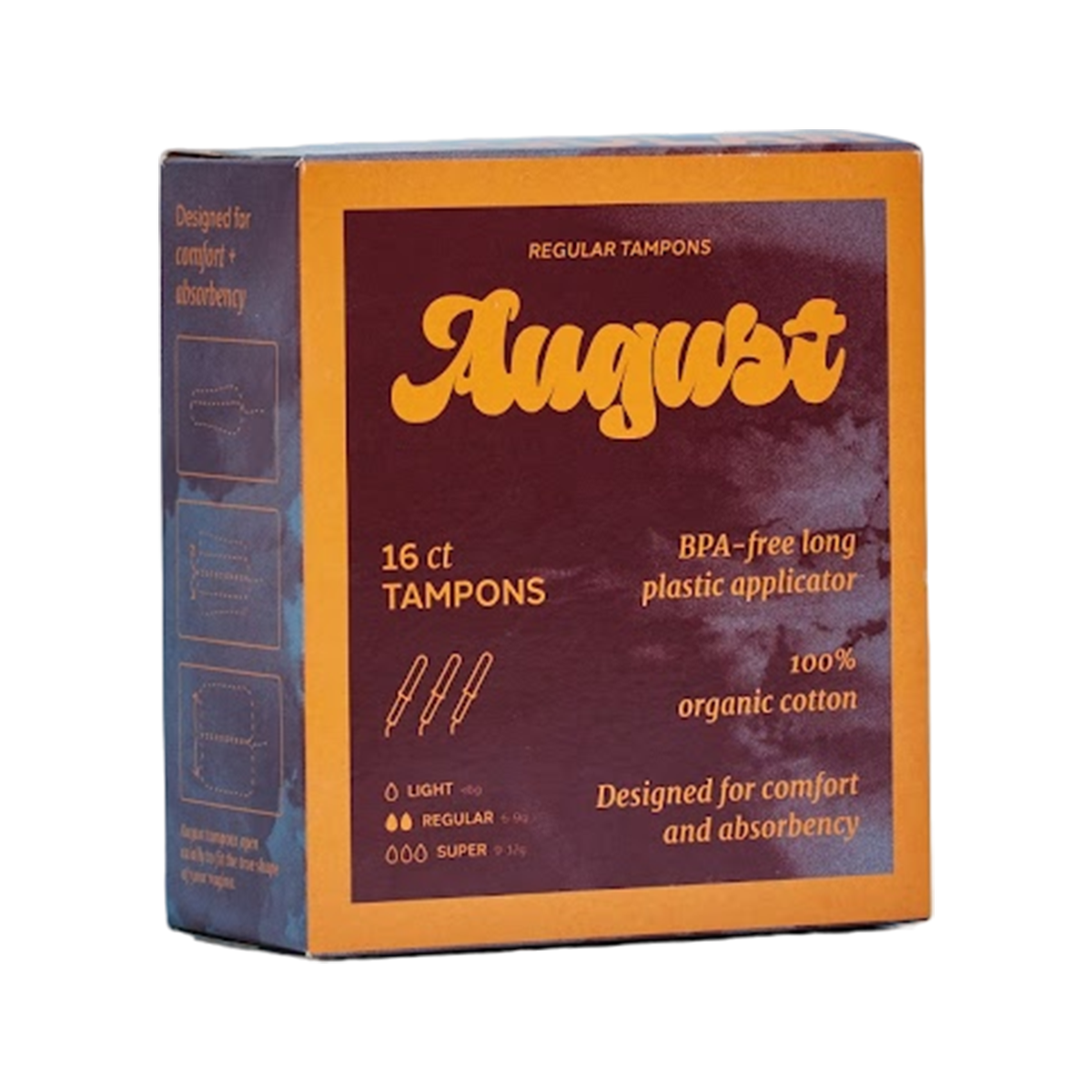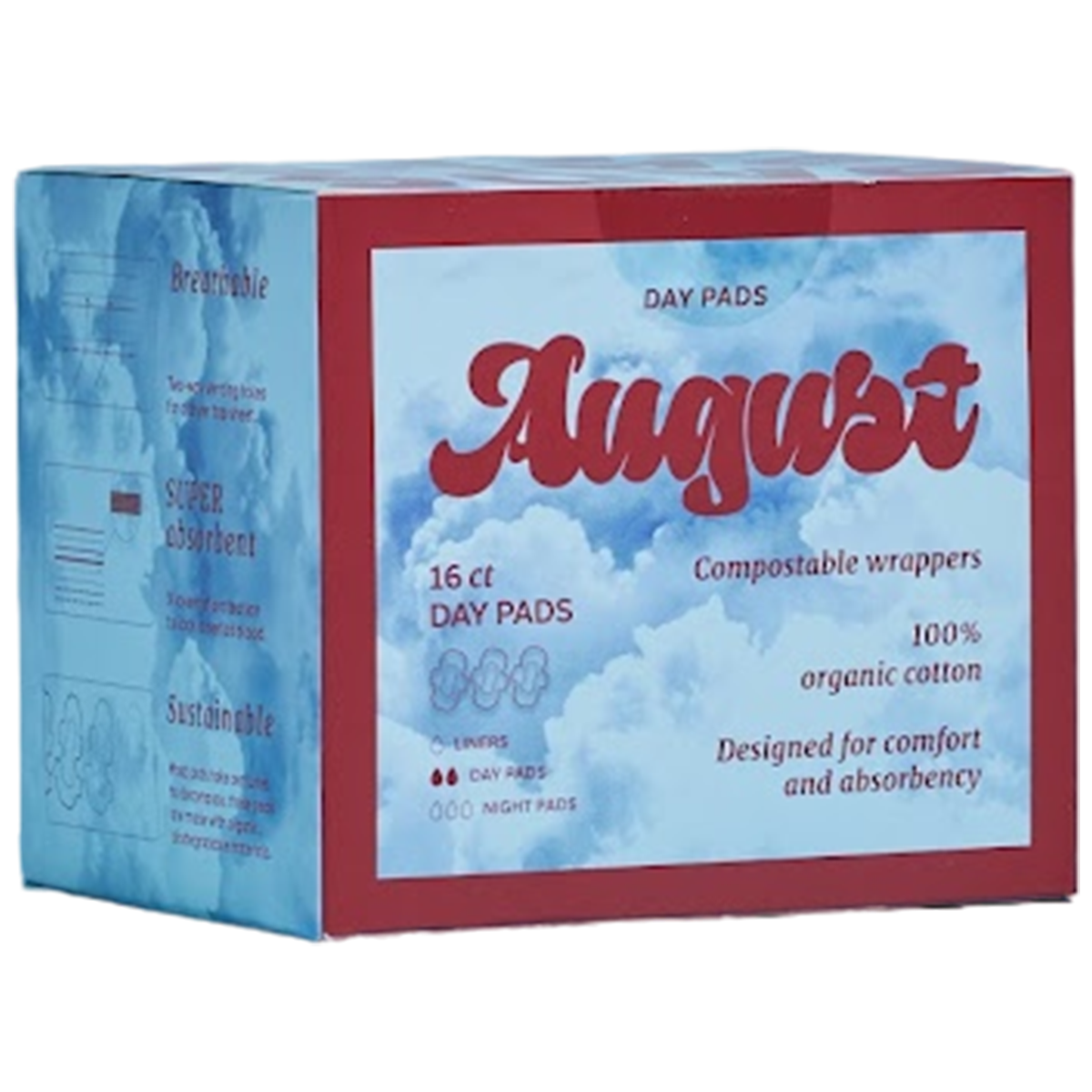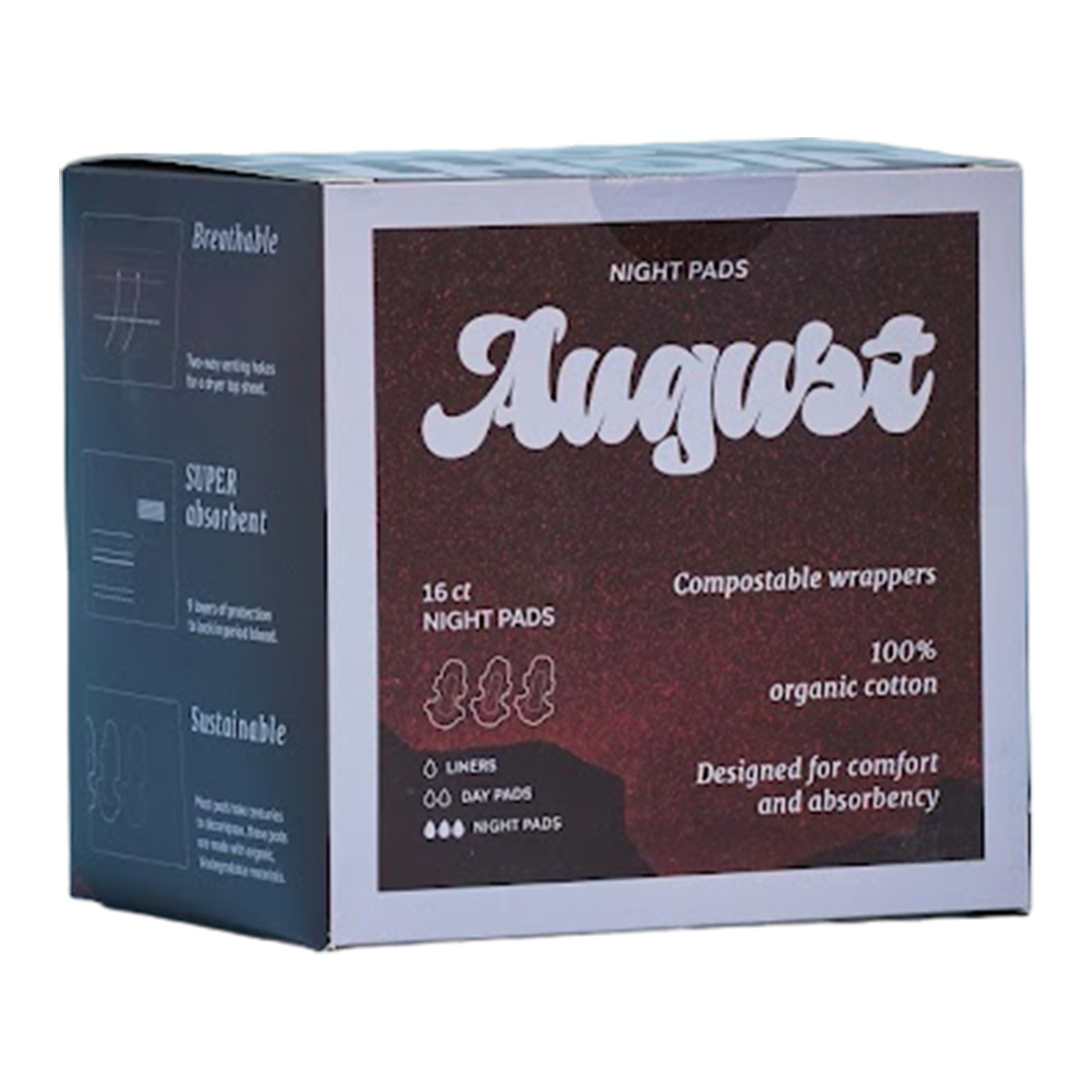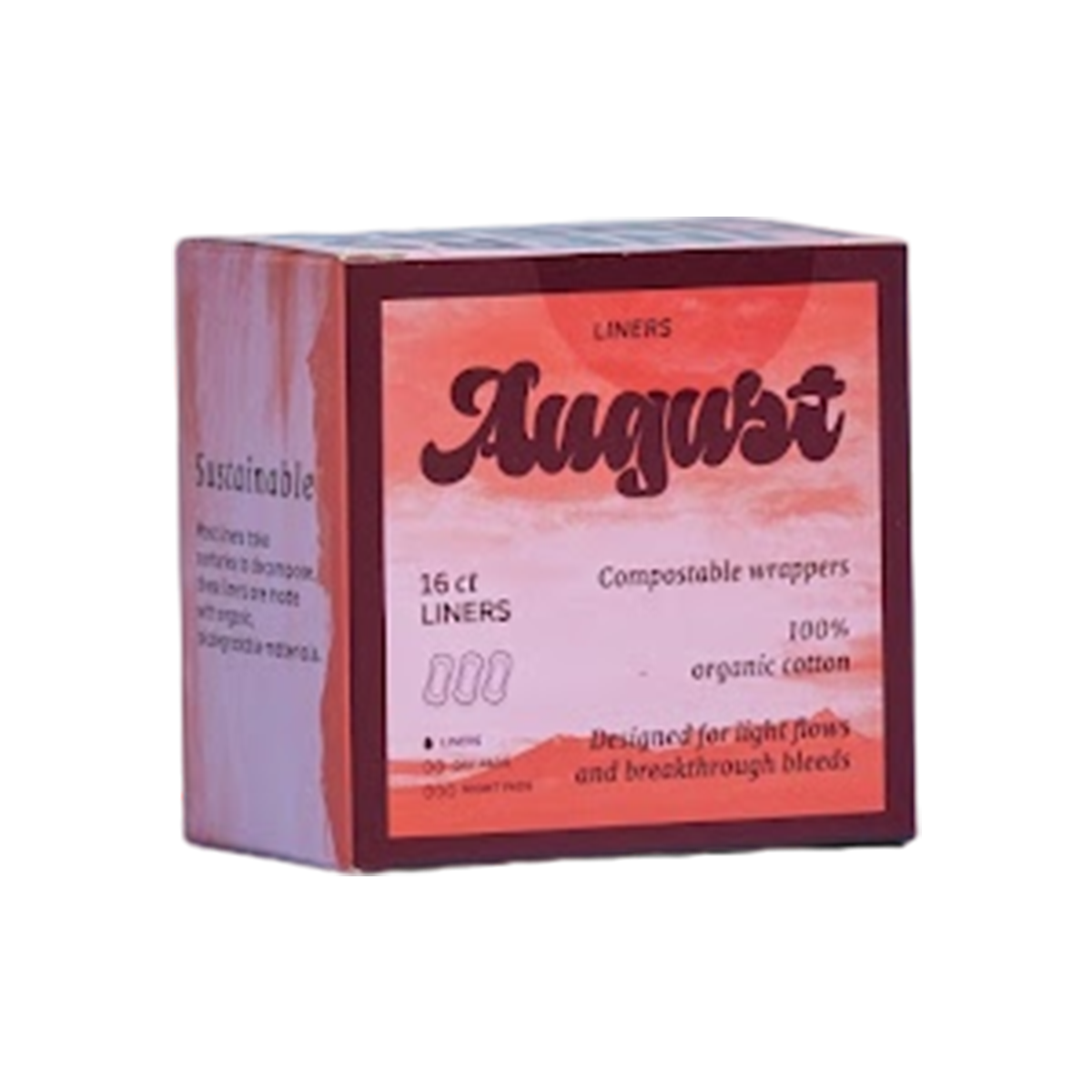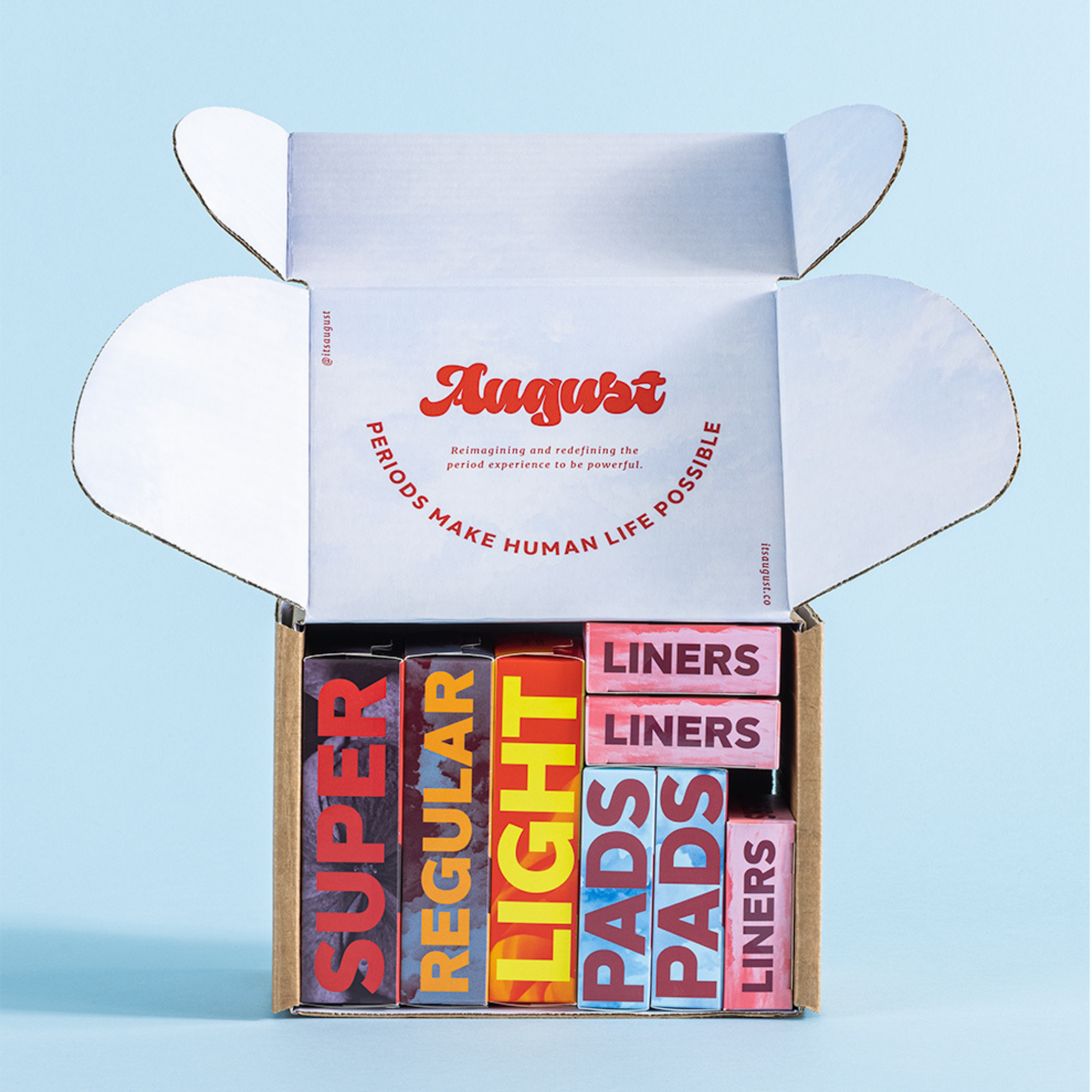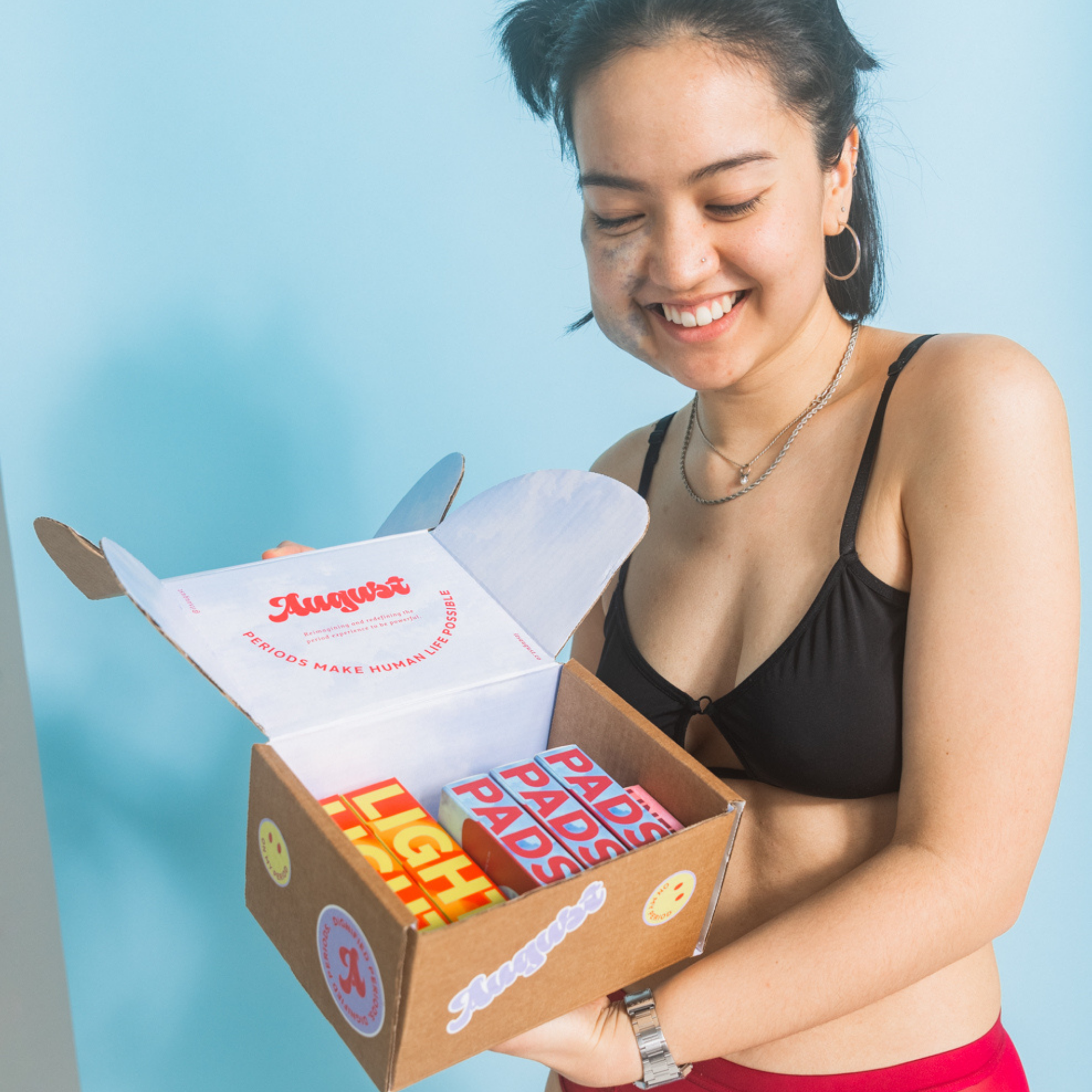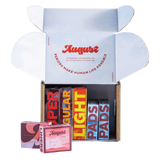We met Eunice Ban at an event a few weeks ago and were so thankful to her for sharing her story with PCOS.
Read on to meet Eunice and hear how she came to be diagnosed with PCOS.
Introduce yourself! Who are you & what do you do?
Graduating from Baruch college for Finance and Philosophy, class of 2022, Eunice Ban (she/her) is excited to see what the world will throw at her next!
My hobbies include singing and acting – I was in the production of my school spring musical! I also love to manicure my own nails.
Can you share your first period story?

My first period experience was very scary. That being said, my family has never thought of periods as something to be secretive or ashamed of. It was actually seen as something very good because, like tradition, they thought of it as becoming “a woman”.
I have an older sister and a mom who had their periods and would tell me “you’ll get your period soon too”. Little did I know, that day would come sooner than I thought.
I was in the 4th grade when I got my first period. I remember waking up in the morning and seeing brown spots in my underwear. I suspected it to be my period but I was in the 4th grade and everyone told me I would get it in middle school. So I tried to brush it off like it was nothing. Honestly, I think I was just in denial.
Anyway, I just stuffed toilet paper in my underwear and went to school. Coincidentally, my other friend also started her period and while she was vocal about it, for some reason I was embarrassed and scared.
Embarrassed because no one else had it which made me feel as though I was not normal and made me feel scared because I was only around 4’6 and I heard that once you get your period, you stop growing after a year or two.
So I stayed quiet in that classroom and even when I got home. I didn’t tell my family until the next day when I finally accepted it myself. My family was so happy for me and I received pocket money from other family members now that I’m becoming a “woman”.
Thinking about it now, I wish that school had taught us more about periods from a younger age, especially about how it can come earlier in your life and that that’s normal too. I wish I wasn’t so scared about it back then. I’m sure other young menstruators have had similar experiences. But, we’ve come a long way in society and I’m glad that today, I am able to share this story openly and without shame.
When and how did you know that you had PCOS?

I actually didn’t know I had PCOS until I took a blood test at my OB/GYN because I had no other symptoms besides irregular periods.
Back in 2019, I remember I didn’t have my period for about 4 months and to me, that was normal because previously I’d missed periods for months due to stress. However, my friends convinced me to go to an OB/GYN, in part because of the irregular periods but also because I was 19 years old and it was time for me to get checked out anyway.
My OB/GYN did an ultrasound on me as well as a blood test and behold, I found out I had PCOS. It was scary at first but then I heard how common it was and that mine was a mild case.
I also learned from my doctor that it was genetic but that whoever in my family has it probably didn’t know because when people with PCOS get pregnant and have a baby, sometimes, the body just heals itself.
The body is such an amazing thing and even though I have PCOS, I don’t let it destroy my confidence in any way.
Before we continue with Eunice’s story, here’s a brief explanation of PCOS:
Polycystic Ovary Syndrome (PCOS) is a hormonal disorder.
Folks with PCOS have irregular or prolonged periods due to high levels of androgens, or hormones typically produced by those who are assigned male at birth.
Since the full cause of PCOS is not fully known, some other factors that may be relevant to a PCOS diagnosis are excess insulin, low-grade inflammation, or if your parent has PCOS.
How is PCOS diagnosed?

PCOS is a tricky disorder and quite hard to definitively diagnose, so there isn't a one size fit all path to diagnosis.
Usually, your doctor will start with a conversation about your symptoms, then run a blood test or pelvic exam. In some cases your doctor may also run an ultrasound to check out the appearance of your ovaries and the surrounding tissue to be 100% sure.
If you think you may have PCOS and are having trouble getting diagnosed, we know advocating for yourself and navigating the medical system can be hard. To be extra ready for your first appointment we recommend preparing a detailed list of your symptoms and the length of time you have had them, all the medications and supplements you take, a record of your menstrual cycle, and a list of all your questions.
Team August is cheering you on, you got this!
Back to Eunice’s Story now <3
What does your PCOS treatment/mitigation plan look like?

I’ve been taking combination birth control pills since 2019 but I recently stopped in March of 2022. I could have continued taking birth control but I wanted to try a more natural way for my body and after 4 months of being off the pill, I feel great!
Since my case of PCOS is very mild, I was told by my doctor that if I am able to watch what I eat and exercise a moderate amount, I can suppress the symptoms and my period should come consistently.
What advice would you give to younger menstruators out there who are discovering that they have PCOS?

One piece of advice that I would give to younger menstruators who are discovering that they have PCOS is don’t be scared.
I know how scary it can be to find out you have this syndrome. Hell, I was extremely worried especially because I want kids and a lot of people with PCOS have trouble with fertility. But, know that you’re not alone in this journey and that you’re a strong person.
Having PCOS is NOT the end of the world and it shouldn’t hinder you from being whoever you want to be. And if you think there is no one around you who you can talk to – there are so many people, including the August team and myself, who are here for you.
My instagram will be included in this article, so if any of you fellow menstruators need someone to talk to, DM me!
The August team and CEO Nadya Okamoto are amazing people who really strive to bring awareness to not only periods but other related topics such as PCOS and they are just super comfortable to talk to as well.
What does period power mean to you?
Period power means I don’t need to be embarrassed of blood soaking through my pants.
I don’t need to be embarrassed to cover blood on my toilet paper with more toilet paper.
I don’t need to be embarrassed about talking about periods in a room full of non menstruators.
Period power, to me, is a statement that I am able to be confident with my own body and no one can stop me.
Why does August period care as a brand/community/product etc. resonate with you?

August period care resonates with me because not only is it a brand that sells TAX-FREE period care products when legally possible, but it is a community that really wants to help those in need.
In the past, I never really thought about how many menstruators who don’t have access to period products. Or that they had to use means other than a pad for their periods. I am privileged enough that it has never even crossed my mind. However, seeing what August and Nadya are doing for the community is such an inspiring thing.
As a menstruator, I know how expensive pads and tampons are getting and the fact that August sells higher quality, sustainable products that are tax-free except when legally required makes me feel like I am being taken care of and that me and my uterus matter.
Anything else before you go? <3
I want to thank the August Team for inviting me to share my story and I’m so excited to follow along August’s journey to reimagining periods!
